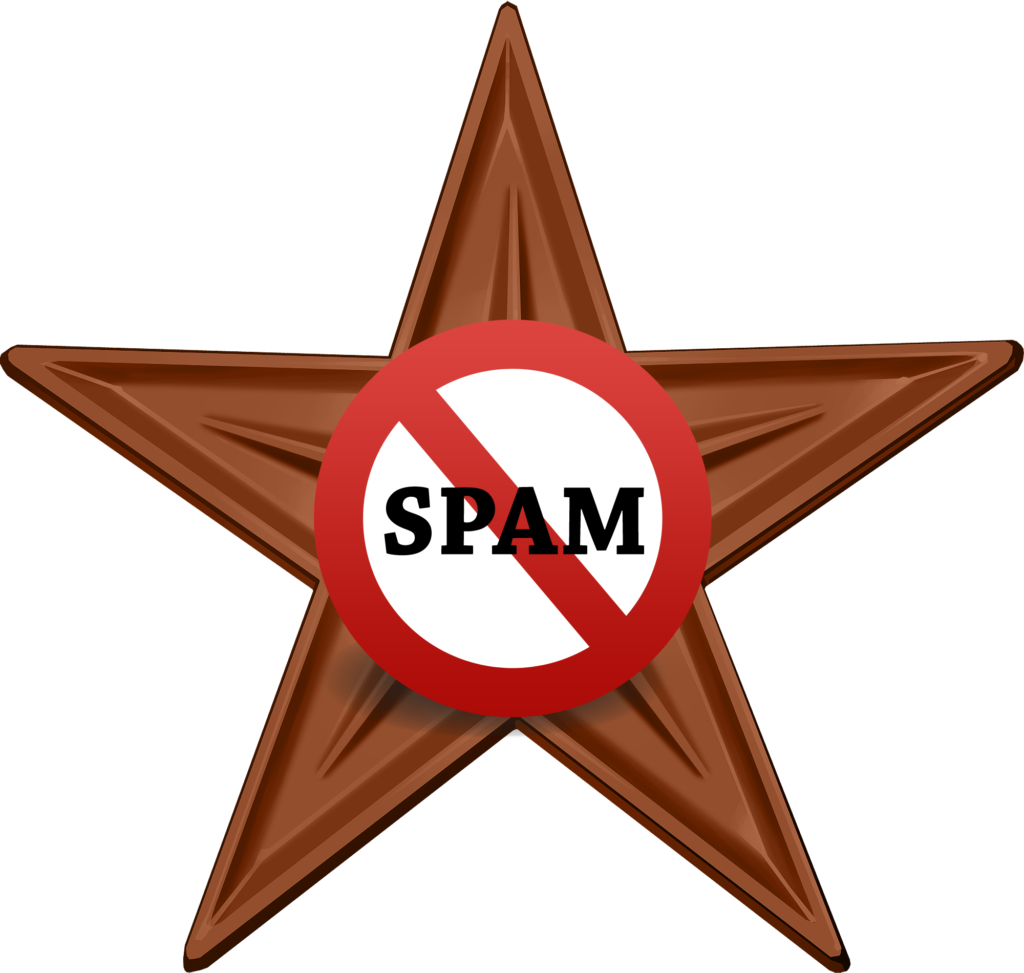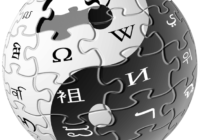I’ve seen some shocking paid Wikipedia editing fails during my time as a prominent UK-based professional Wikipedia editor,
Just to be clear. I am not about to show you how to circumvent Wikipedia’s security protocols.
This blog is not a step by step guide on how to hack Wikipedia. Think of this series as a guide to the best practices for PR or communications professionals wishing to do paid Wikipedia editing in the UK.
For reputation management, any strategy that diverts resources away from a non-profit is flawed. Instead, here are some pointers, pitfalls and epic failings that I regularly see. If you want to be a pro-Wiki editor in the UK or abroad you should avoid these paid Wikipedia editing pitfalls.
Let’s get into it.
Paid Wikipedia editing Fail number one: Wrong objectives
In April 2004, UK artist Banksy smuggled a stuffed rat in sunglasses, into the Natural History Museum. Both the museum’s staff and visitors failed to spot the unauthorised exhibit, aptly titled, Banksus Militus Ratus.
At this point, you are probably wondering, what is a paid Wikipedia editing expert from the UK doing writing about guerrilla art?

Well, Banksy’s stuffed-rat exhibit is also a good blueprint for an effective paid Wikipedia editing strategy. Ideally, your company’s Wikipedia project should play out like a reverse museum heist. You want to smuggle an exhibit into the museum without anyone noticing. Paid Wikipedia editing, when done correctly, should be undetectable. (Jamielniak, 2014)
What can we from Britain’s most beloved anarchist when doing paid Wikipedia editing in the UK?
Well, first of all. Banksy first attempt at guerrilla curation failed. His unauthorised exhibit at Tate Britain didn’t stick. The glue he used was too weak.

Getting things to stick without getting caught is the primary objective of professional Wikipedia editing. When things don’t work out first-time, we take the lessons we learned and use them to perfect our art. Fortunately, you don’t need to log onto Wikipedia and make schoolboy errors to learn this trade; instead, take the shortcut, read my blogs.
On his second attempt, the Bristolian graffiti artist disguised himself as a museum worker, and successfully affixed his exhibit to the wall. At one-point Banksy’s manager witnessed a genuine member of the museum’s staff approach the display, check it was correctly fastened, read the exhibit’s text and sauntered off. (Dodd, 2004)

Banksy fooled the curators by presenting his content in a style that visitors would expect to find in a museum. Eventually, a member of the museum’s front of house team spotted the renegade exhibit and removed it. As a project, Banksus Militus Ratus was a success. Still, as a reverse museum heist it failed because ultimately, conceptual art does not belong in a science museum. Analogously, many first-time paid editors and companies fail to get their content to stick. Bad paid Wikipedia editors or overseas attempt to post creative-copywriting, ad-speak or boilerplate in an encyclopaedia simply the wrong place, for such content.
How should paid Wikipedia editors help their clients without getting spotted?
I am not suggesting that professional Wikipedia editors deliberately try to fool Wikipedia’s volunteers. Instead, I recommend taking things one step further by only posting legitimate content and making good-faith edits. Instead of pretending to be a fake Wikipedian, be a real Wikipedian.

Unlike our anonymous anarchic national treasure, you don’t need to pretend to be a member of Wikipedia’s museum staff. Once you click edit and actively engage with the platform, you are putting yourself forward as a volunteer. If you make valuable good-faith contributions, Wikipedia will welcome you with open arms.
Here are the key points to take away;
- The primary goal of any paid Wikipedia project is to put the needs of the encyclopaedia before the needs of your client.
- If nothing more, think of your client as a subject, set yourself the goal of improving Wikipedia’s coverage of the subject, using Wikipedia’s methodology.
- Always try to limit your client’s involvement in the content creation process; allowing your client to shape the content, will skew your objectivity and neutral point of view.
Fail number two: disclosing a conflict of interest (COI).
Many volunteers within Wikipedia’s community believe that Wikipedia’s COI disclosure policy places unnecessary and undue strain on the platform’s human resources. They even have a term for it: Buy one, get one free. The term refers to the phenomenon of volunteer editors helping paid editors by either fixing their mistakes or implementing their edit requests.
Although, not an official policy bog-off crops up again and again in conversations surrounding COI and is the main reason Wikipedia’s COI disclosure policy failed. The issue that the anti-bog-offers have is one of time and resources.

The anti-bog-offers don’t like Wikipedia’s COI disclosure policy. They contend that when companies hire an editor, and that editor receives volunteer help, that company is getting two editors for the price of one.
Why don’t professional Wikipedia editing disclosures and edit requests work?
To implement Wikipedia’s COI (conflict of interest) policy requires effort on the part of experienced volunteer Wikipedians. Typically, whichever volunteer executes the edit request will have better skills than the company’s social-media apprentice or copywriter. Therefore, companies that use Wikipedia’s official COI disclosure route get a second, more experienced Wikipedian for free.
Naturally, many Wikipedians believe this is wrong. Some will not engage with disclosed paid editors altogether. In contrast, others will troll self-identified paid editors and use it as an opportunity to amplify their anti-business agenda.
In my experience, declaring a conflict of interest rarely yields a favourable outcome for the client. Instead, I recommend a low impact approach where the only policy that businesses break is the COI disclosure policy.

However, we have a secret weapon in the fight against crusty anti-business trolls. Wikipedia’s fifth pillar forms loophole that allows paid editors, who know what they’re doing, to create and edit pages about their clients. The core-policy titled, Wikipedia has no firm rules, grants its volunteers the freedom to ignore all rules. In essence, for a project like Wikipedia to work, sometimes we have to break the rules, but only if it’s for the greater good of the project.
The policy doesn’t give us carte blanche to post whatever advertorial crap we like on Wikipedia, that’s not why Wikipedia exists. If that were the case, I wouldn’t have a business, any copywriter with a pulse and an internet connection could do it.
This policy is both the loophole that allows businesses like WikiNative to operate and the reason paid editors shouldn’t expect fair treatment if they get caught.
Fail number three: using your name, your company’s name or even your client’s name as your Wikipedia username.
Anonymity’s proponents claim that there are psychological advantages to anonymity. Many believe that behind anonymity’s veil, we find our true selves. In contrast, others maintain that online anonymity is a constitutional right. However, its detractors claim that anonymity breeds malicious Internet users, and provides a cover for dangerous nefarious activities. (Schnorr, 2007)
These are both contrasting but valid viewpoints. However, it seems to be the latter viewpoint gaining the most traction amongst the commercial entities governing the Internet.

Since those astute alchemists at Silicon Valley figured out how to turn our data into money, they publicly voice views which support their business model.
In 2009, former Google CEO Eric Schmidt postulated,
“If you have something that you don’t want anyone to know about, maybe you shouldn’t be doing it in the first place”
– Schmidt 2009 (Stryker, 2012)
And in 2011, while she was director of marketing at Facebook, Mark Zuckerberg’s sister Randi Zuckerberg, had this to say.
“I think anonymity on the Internet has to go away. People behave a lot better when they have their real names down. I think people hide behind anonymity and they feel like they can say whatever they want behind closed doors.”
Zuckerberg 2011 (Stryker, 2012)
Unlike Google or Facebook, Wikipedia’s de-facto referee, The Wikimedia Foundation (WMF) have no vested interest in its user’s data. Their privacy policy states,
“…we believe that you shouldn’t have to provide personal information to participate in the free knowledge movement…”
Wikimedia Foundation’s privacy policy.
Why paid Wikipedia editors should remain anonymous
In layman’s terms, it’s up to you whether you make your identity known to Wikipedia’s community. You can give away as much or as little personal data as you like. Whether you commit to your real-life identity on Wikipedia or whether you remain anonymous is entirely up to you. They even go one step further and allow the public to edit the site without creating an account.
Online-anonymity is a contentious subject. Some studies correlate anonymous browsing with grandiosity, narcissism and low self-esteem; (Teo Keipi, 2015) the 2010 documentary Catfish creeped out everyone who watched it. Moreover, most social media platform’s terms of service prohibit the use of nicknames or pseudonyms. (Krotoski, 2012)

Therefore, I understand why those new to the world of paid Wikipedia editing put forth their real-life identity as they would on a social media platform. Nevertheless, using your name or your client’s name just makes it easier for Wikipedia’s paid editing task force to spot you and block you.
Usernames are an essential part of the paid Wikipedia editor’s toolbox. Instinctively, we judge each other on first impressions in offline spaces, and if you’re anything like me, probably do the same online too. Therefore, paid editors can deflect unwanted attention by having a username that doesn’t sound corporate.

A pro Wiki editor’s advice to paid Wikipedia editors UK and abroad
Here is my advice on how to compose a low-key, low impact username.
- Be as random as possible; pick something that a business or a professional wouldn’t use in a million years.
- Include spaces and punctuation. Don’t write out your username like this JohnDoeofSomethingSomethingMarketing. It will look like you haven’t read Wikipedia’s username policy.
- Read Wikipedia’s username policy before committing to a username. They explain it much better than I do.
In my next blog, I’m going to write about three or four more epic fails. Specifically, uploading too much, too soon, assuming ownership over the content and implicating articles about your competitors. It’s going to be riveting.
Remember. My blogs are for entertainment purposes only. Think of my blogs as the anarchist cookbook of the digital communications industry. In other words, don’t try this at home kids.
As a responsible writer, I strive to provide factually, accurate content. However, it is your responsibility as a citizen of the web to verify whether the information you consume is factually accurate. So please, read laterally, use the citations below, it’s what they’re there for.
WikiNative has no affiliation with the WikiMedia Foundation or any of its sister projects.
Works Cited
Dodd, V., 2004. Natural History Museum exhibits an unnatural specimen. [Online]
Available at: https://www.theguardian.com/uk/2004/apr/08/arts.education
[Accessed 07 10 2020].
https://www.ocf.berkeley.edu/~schnorr/IDS110%20Final%20Project/index.html, n.d. [Online].
Jamielniak, D., 2014. Common Knowledge: an ethnography of Wikipedia. 1st Edition ed. Stanford, Califiornia : Stanford University Press.
Krotoski, A., 2012. Online identity: is authenticity or anonymity more important?. [Online]
Available at: https://www.theguardian.com/technology/2012/apr/19/online-identity-authenticity-anonymity
[Accessed 07 10 2020].
Schnorr, A., 2007. An Anonymous World. [Online]
Available at: https://www.ocf.berkeley.edu/~schnorr/IDS110%20Final%20Project/index.html
[Accessed 07 10 2020].
Stryker, C., 2012. Hacking the Future: Privacy, Identity, and Anonymity on the Web. 1st Edition ed. New York : Overlook Duckworth.
Teo Keipi, A. O. &. P. R., 2015. Who prefers anonymous self-expression online? A survey-based study of Finns aged 15–30 years. Information, Communication & Society, 18(2015), pp. 717-732.




